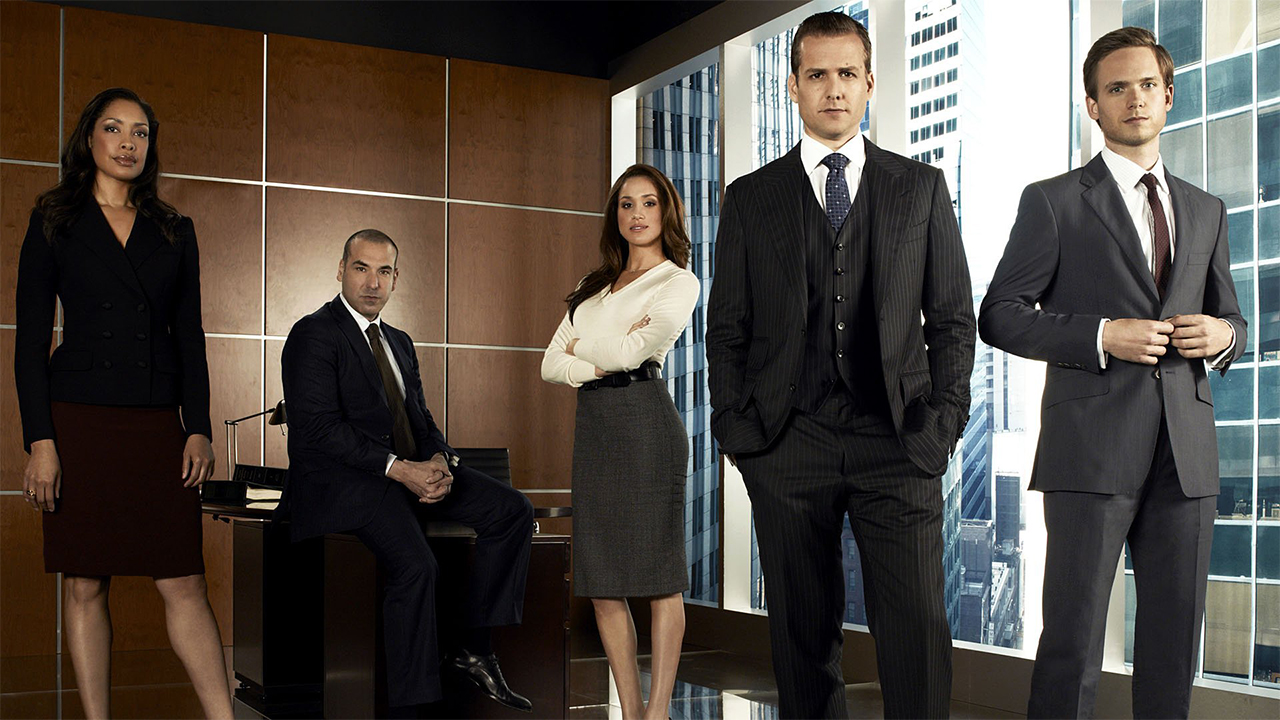"We have some very strong, opinionated, intelligent female characters that run the show" - The cast of Netflix’s Lost in Space talk family, feuds, and real role models
As Lost in Space hits Netflix, we catch up with the Robinson family to discuss family, female characters, and bonding off screen
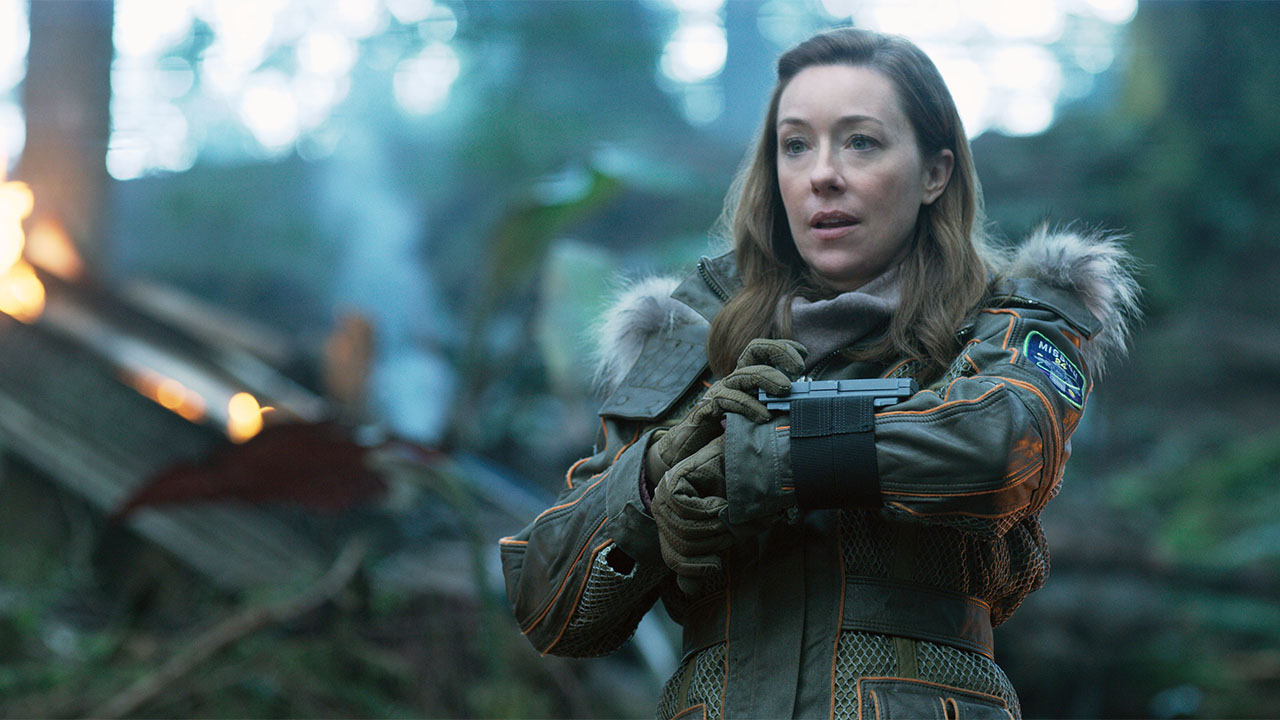
Lost in Space is out now on Netflix, worldwide. The show, which has received a mixed reaction from critics (personally, I loved it), eschews darker sci-fi themes like isolation and the alien in favour of family, adventure, and strong gender role models. It’s more an exploration of the family dynamic than actual space, and it has an optimistic outlook on the whole thing. That spirit holds very true to the ‘60s version of the show but, thankfully, this optimism is one of the few elements that has been retained for Lost in Space’s reboot. Well, that and the robot, which no longer looks like Lady Gaga’s vacuum cleaner. Netflix’s version is infinitely more progressive, with complex interpersonal dynamics (this family is pretty broken at the start of the season), and far stronger female characters than the deferring women of the original.
“What I really got from the original was the family aspect,” says Taylor Russell, who plays eldest daughter Judy Robinson. “I think it made a lot of people who watched the show feel really good; and they could watch it with their families; and it elicited a really warm feeling in everyone.” That particular universal appeal most definitely runs through this new iteration of Lost in Space. Most recent sci-fi - from Altered Carbon to Legion to Star Trek Discovery - has been strictly adult only, pushing strong themes and even stronger violence our way. That’s no bad thing, but it wasn’t necessary or appropriate for Lost in Space. In fact, there was a definite niche for sci-fi that plays nice, outside movie theatres well served by Star Wars.
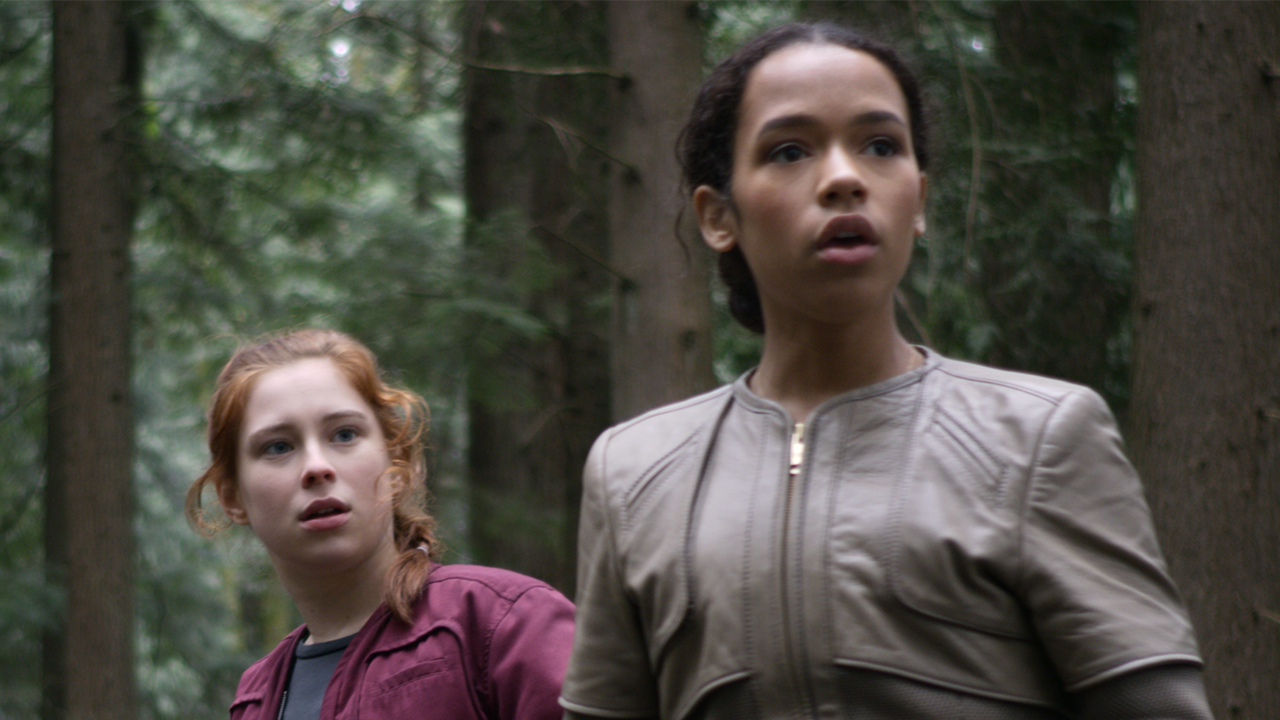
“It never felt like ‘Oh yeah, we’re making a female empowerment piece’ or ‘it’s really great as a woman doing that’.”
Taylor Russell
“Within our series we hold true to the original values of family and perseverance, but we’ve definitely changed in that we have some very, very strong, opinionated, intelligent female characters that kind of run the show,” explains Mina Sundwall, who plays Penny Robinson - the middle-child of the family. “And yeah, I think in general… our spacesuits are a little more appropriate for space than the costumes of the original!” She’s not wrong. Characters like Maureen Robinson (Molly Parker), Judy Robinson, and antagonist ‘Dr Smith’ (Parker Posey) regularly outshine everyone else in the show. The crucial difference between the women in Lost in Space and many other sci-fi shows is that they do so in their own right, rather than by simply assuming traditional male roles.
Maureen Robinson in particular feels like the central character in this first season, the remainder of the family pivoting around her dynamism and matriarchy. While John Robinson still plays the action hero role, boldly throwing his body at most perilous situations inflicted on the group, it’s his estranged wife that holds everything together and ultimately pushes the family to persevere. What’s more, she does so without ever losing her femininity or motherly warmth, two things that could easily have undermined her character and shattered the depiction of the whole Robinson family. Given how well realised the women are in Lost in Space, it may come as a surprise that the issue of gender equality and strong female leads wasn’t really an issue during filming. “It never felt like ‘Oh yeah, we’re making a female empowerment piece’ or ‘it’s really great as a woman doing that’,” says Russell.
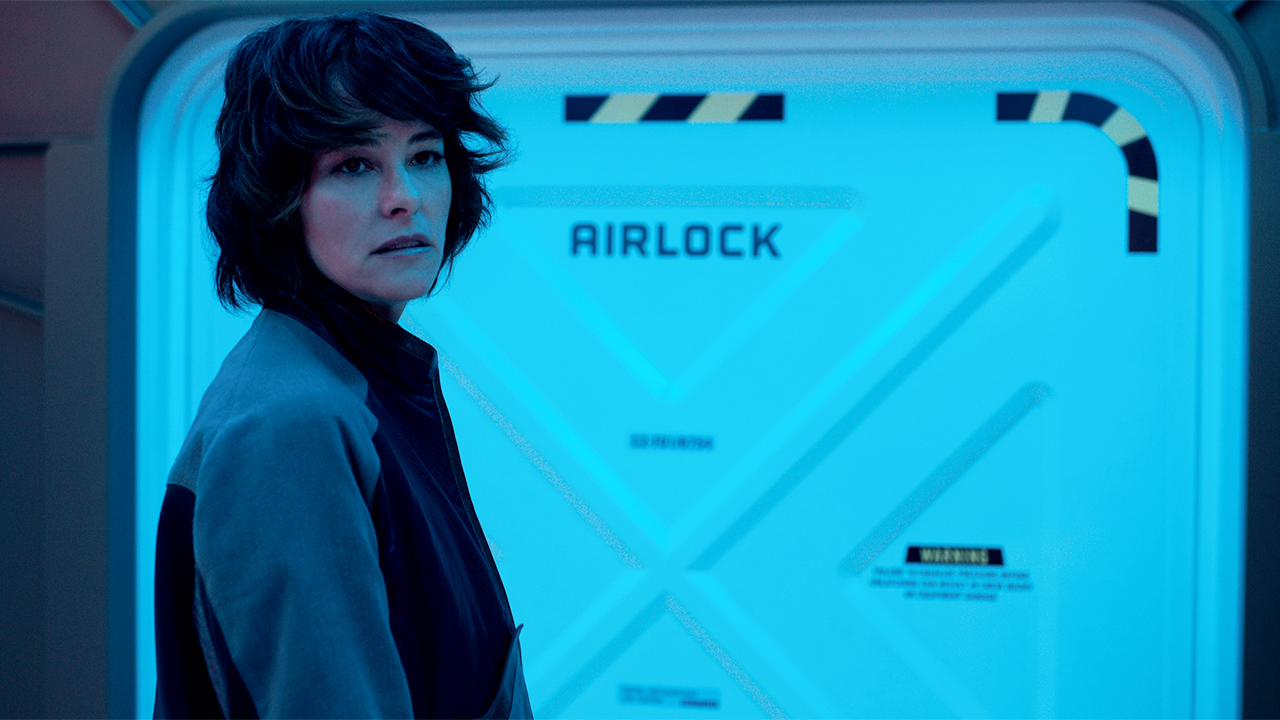
She continues: “I think that it’s beautiful and great that we have a lot of females on the show that are in positions of power and it’s never questioned, it’s just the way that it is and I think it’s going to be nice for girls to watch this show now. I see a lot of Millennials who need role models like that, and I look up to a lot of young girls who are in positions of power, so I’m really happy that our show is holding a place for women. But I think hopefully in the future we’ll be at a point where that won’t be ‘a topic’ – that will just be the norm”. Given how this was scarcely discussed during the filming of Lost in Space, it seems this ‘norm’ is on the way. All eyes are now on the likes of Doctor Who, Westworld season 2, and a furthering of Star Trek Discovery to push us towards the point where gender equality is no longer an issue in TV. After that? Well, maybe the big movie franchises will catch up eventually.
In many ways, it would have been impossible to create a realistic Robinson family without authentic roles within it. Lost in Space goes to great lengths to remind us that these characters existed well before they hurtled into the night and crash landed on the unnamed planet they’re stuck on for season 1. It also reminds us that modern families are far from perfect, and that people within them are often forced to change and grow in directions they hadn’t initially expected. “I think John leaving had a really big impact on Judy and she had to watch her Mom parent on her own,” says Russell. “We talked about this with the creators – the fact that Judy would have seen Maureen crying some nights or having conversations with John and them yelling over the phone and having a really tough time with Will and Penny – when you’re in a situation like that, watching your parents do it all and you’re the only person there that can really help them, it forces you to grow up faster.”
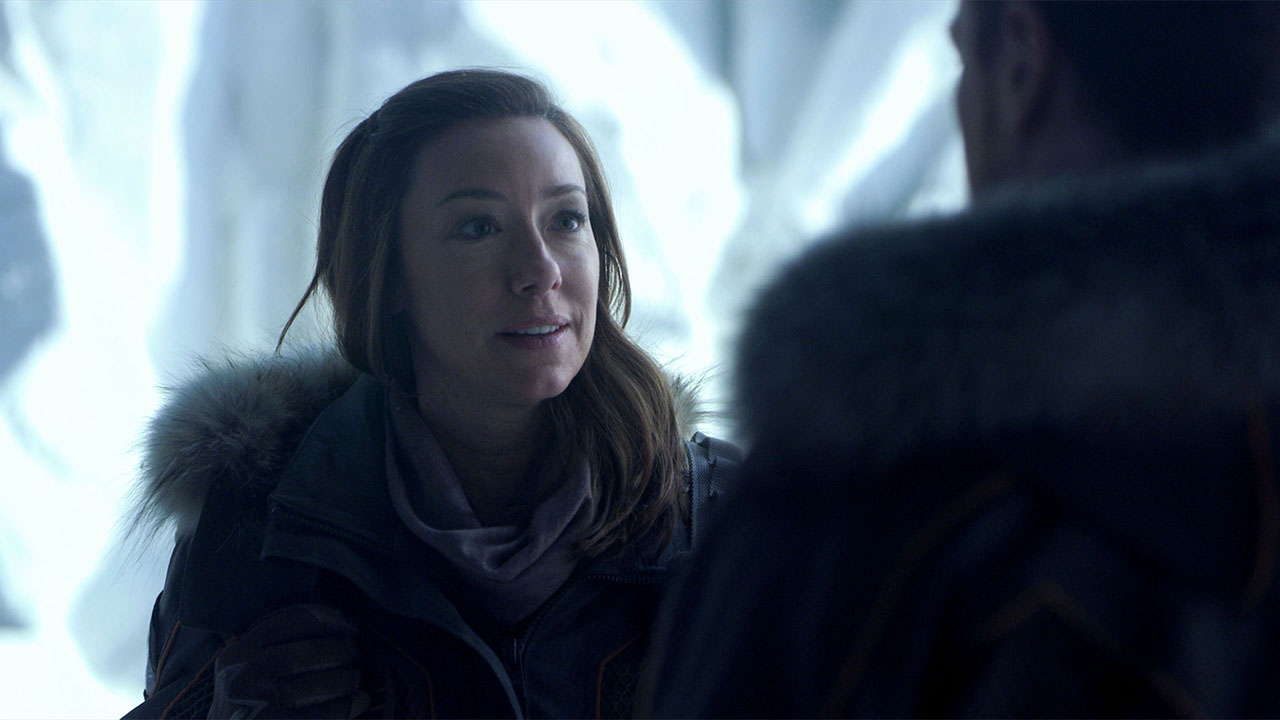
"At this point we’re just as much a family off screen as we are on screen."
Mina Sundwall
It’s not just Judy who is forced to grow up fast - all the Robinson kids, and the remainder of the younger passengers of the Resolute, are older and wiser than their years, by necessity. With the possible exception of Will Robinson (Maxwell Jenkins) himself, who is often played as the childish, naive youngster - for better or worse. Ironically, it’s the extreme conditions of the mission-gone-wrong that forces the Robinsons to either bond together or fracture completely. “There’s marital problems between John and Maureen and there are sibling rivalries that go on,” says Sundwall. “But that goes off of I think, personally, a lack of understanding that when you’re placed in the situation that they’re placed in, that’s so extremely life or death, you learn how to thrive off of each other’s differences.” Essentially, it’s the acceptance of these conflicts, and the realisation that the family is big enough for all its varied personalities that ultimately helps them succeed. It’s a strong lesson, especially for younger viewers struggling with separated / clashing parents, or even siblings learning to accept the views of brothers and sisters.
Sign up to the SFX Newsletter
Get sneak previews, exclusive competitions and details of special events each month!
Another strength of the show is that - despite the often adverse and alien conditions - the Robinson family feels and acts like an authentic unit. That comes from more than just the calibre of the acting - it’s born from the fact that you’re thrown together with the same people, every day, for months at a time. Much like being stranded on an alien planet, it can make or break a group of very different people. According to Sundwall, it brought everyone much closer together. “We’d see each other from the earliest hours of every morning to the earliest hours of the next morning, and in our best and in our worst moods and we’ve become a support system for one another, and at this point we’re just as much a family off screen as we are on screen.” Very much a case of life imitating art imitating life, then. And an encouraging sign that we’ve not seen the last of this latest brood of Robinsons on Netflix.
Lost in Space is airing now on Netflix worldwide.
